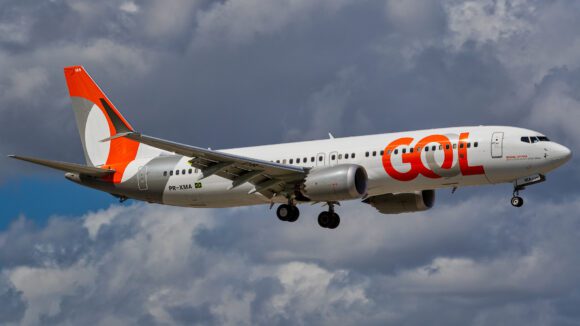Last week United announced its deal to take a stake in Azul. This follows an earlier move by Delta to take a stake in GOL. What do these deals mean? Let’s start with the following table.
Brazil is the key travel market in South America. Its economy is huge despite the latest recession and overwhelms all the other nations in the region. US airline interest is therefore straightforward. Note that Delta moved a long time ago to cement its relationship with GOL. While the amounts invested are the same, the stakes acquired, perhaps, show how much the market has changed since Delta made its investment.
The United/Azul deal comes at a great time for Azul. The Brazilian airline recently won the deal to buy TAP in Portugal. The cash will be useful – a consortium led by Azul’s CEO David Neeleman and Portuguese transport group Barraqueiro, bought 61% of TAP Group for $391m. Connecting Portugal and Brazil is likely to be a good deal between former colonial master and colony. There are currently 77 weekly flights between the countries. In addition, TAP is part of Star Alliance and Azul is about to join the alliance. All in all, a good tie up across the board.
The deals interestingly do not include voting rights. This allows GOL to stay out of Sky Team. GOL is therefore freer to trade with others than Azul can – like a deal with Star member Air Canada. Even so, by moving years ago, Delta and GOL have their codeshare well settled in. They started with 15 Brazilian routes and in 2013 grew this to 23 (by which time 28% of Delta’s Brazil traffic made a connection).
The Brazilian market has one other airline group which is probably too big for a US carrier to get a meaningful stake in. That would be LATAM, a combination of LAN in Chile and TAM in Brazil. LATAM is a big airline today with over 52,000 employees and 310 aircraft. Of the two member airlines, TAM is with Star and LAN is with oneworld. With Azul joining Star, does TAM make a switch? We expect American to make encouraging noises. Clearly Azul moving in with United means United will have thought through this issue. It’s not clear how TAM might feel about traffic feed being shared.
The Bottom Line:
Each of the alliances will want a share of the Brazilian market. SkyTeam via Delta/GOL and Star via United/Azul already have a presence. Oneworld needs a presence, and convincing TAM to switch to the alliance its partner LAN is already in will, in our view, be the next logical step. Stay tuned, as the Latin American market, poised for growth, comes into focus over the next year.
Views: 0




Hi Addison,
Lately, Brazilian market has been very dynamic.
TAM switched from Star to Oneworld in March 2014. Avianca Brasil is about to join its sister companies in Star from July 22. Avianca is much smaller than TAM and Star may pursue a second partner (Azul) to fill the void left after TAM’s departure.
Gol set up a codeshare with TAP late last year. We could expect this codeshare to end in favour of a TAP-Azul partnership.
Besides Delta, AF-KLM also has a stake in Gol. Skyteam carriers Alitalia, AeroMexico, Korean and Aerolineas Argentinas also codeshare with Gol.
Since early 2014 TAM is already a member of Oneworld
One of the regulatory requirements from the Brazilian and/or Chilean Government, or both, in allowing the merger of LAN and TAM to proceed was that they could not belong to different airline alliances. This was probably due to regulatory concerns about the merged carriers’ overall international-market influence on routes to and from South America. The result, as Victor notes above, was that TAM left the Star Alliance and moved to oneworld. Since LATAM is Latin America’s largest airline group and probably its best-regarded for service standards, oneworld is in a very strong position both in Brazil and throughout South America, since all of the LATAM members (including all the national LAN carriers and TAM Paraguay, as well as LAN Airlines and TAM itself) are members. However, it does indeed look likely that Azul will join Star, because together Azul and Avianca Brasil approximately match up to the domestic market power wielded by TAM and Gol, which as Victor points out is not a member of Skyteam but has codeshares with several of its member carriers in addition to its partnership with dDelta.